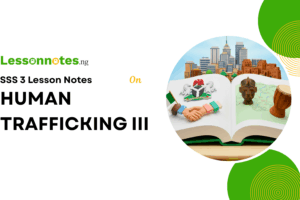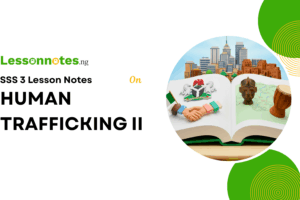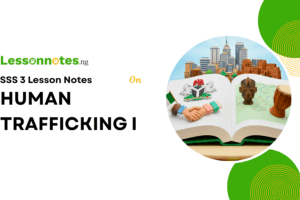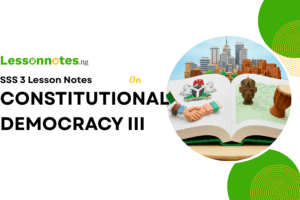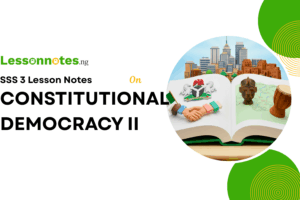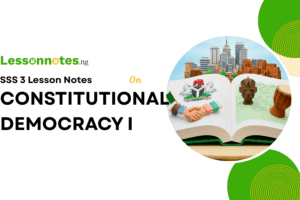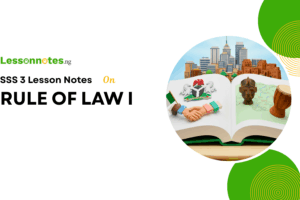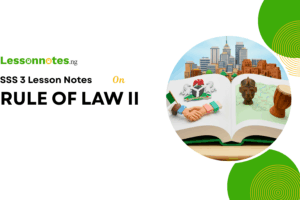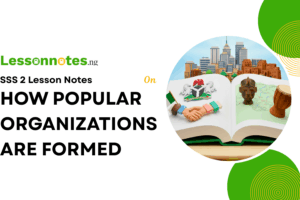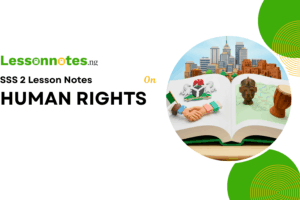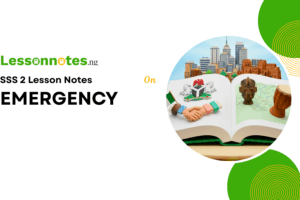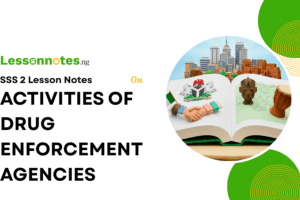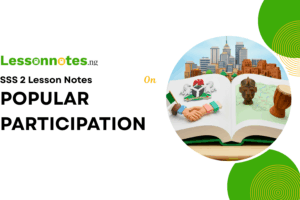The Seven Freedom Of UDHR SS1 Civic Education Lesson Note
Download Lesson Note
Lesson Notes
Topic: The Seven Freedom Of UDHR
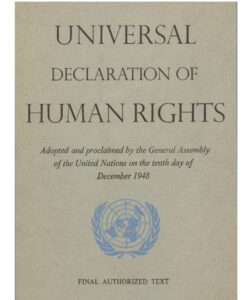
The Universal Declaration of Human Rights (UDHR) is an international document that states basic rights and fundamental freedoms to which all human beings are entitled.
The Universal Declaration of Human Rights was adopted by the General Assembly of the United Nations Organization on December 10, 1948. The Charter consists of thirty (30) articles on Human Rights. It also has core freedoms.
THE IMPORTANCE OF UDHR
- The recognition and declaration of human rights is the foundation of freedom, justice and peace in the world.
- It is the last resort and a rebellion against tyranny and oppression.
- It promotes friendly relations between nations of the world.
- It promotes social progress and a better standard of life in larger freedom.
- It brought about the promotion of universal respect and observance of human rights and fundamental freedoms.
- It acts as a guideline for a human king in determining what is right and what is wrong.
- It reinforces all other human rights, allowing society to develop and progress. The ability to express our opinion and speak freely is essential to bring about change in society
THE SEVEN FREEDOM OF UDHR
The seven core freedoms of UDHR are those rights that concern individuals directly and influence their peaceful existence as human beings either within or outside their country. The freedoms include the following:
- Right to life, liberty and security of person.
- Right to freedom of thought, conscience and religion.
- Right to freedom of movement and residence within the borders of each State.
- Right to freedom of opinion and expression.
- Right to freedom of peaceful assembly and association.
- Everyone is entitled to full equality to a fair and public hearing.
- All human beings are born free and equal in dignity and rights.
- Right to own property alone as well as in association with others.
- Right to recognition everywhere as a person before the law.
- Right to an effective remedy by competent national tribunals/law courts.
- Right of an individual to leave and return to any country including his/her own.
- Right of an individual to flee persecution and seek asylum in other countries.
- Right to a nationality.
- Right education.
- Right to social security.
- Right to work.
- The right of an individual to take part in the government of his/her country.
- Right to marry and family life
- Right to freely participate in the cultural life of the community.
- Everyone is entitled to social and international order.
- No one shall be subjected to arbitrary interference with his/her privacy, family, home or correspondence, or attacks upon his/her honour and reputation.
- No one shall be held guilty of any penal offence on account of any act or omission which did not constitute a penal offence.
- No one shall be subjected to arbitrary arrest, detention or exile.
- All humans are equal before the law and are entitled without discrimination to equal protection by the law.
- No one shall be subjected to torture or cruel, inhuman or degrading treatment or punishment.
- No one shall be held in slavery or servitude.


